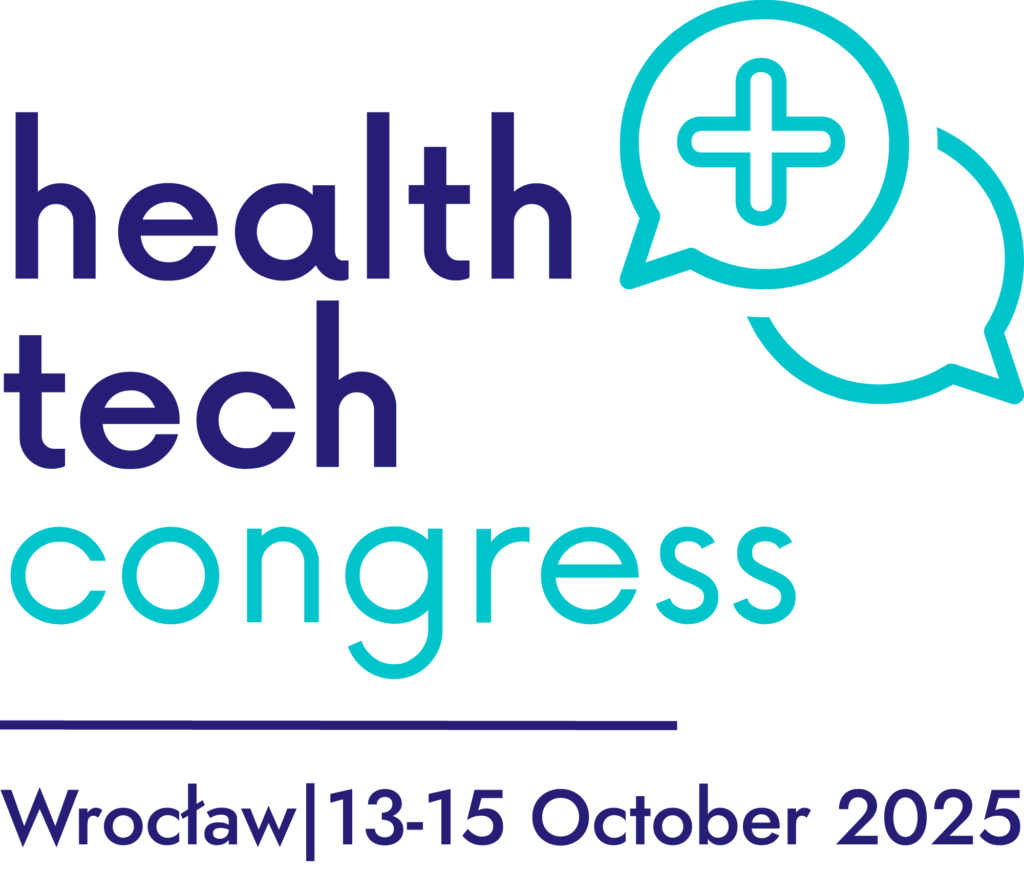HealthTechCongress – 13-15 October 2025
International Advisory Board
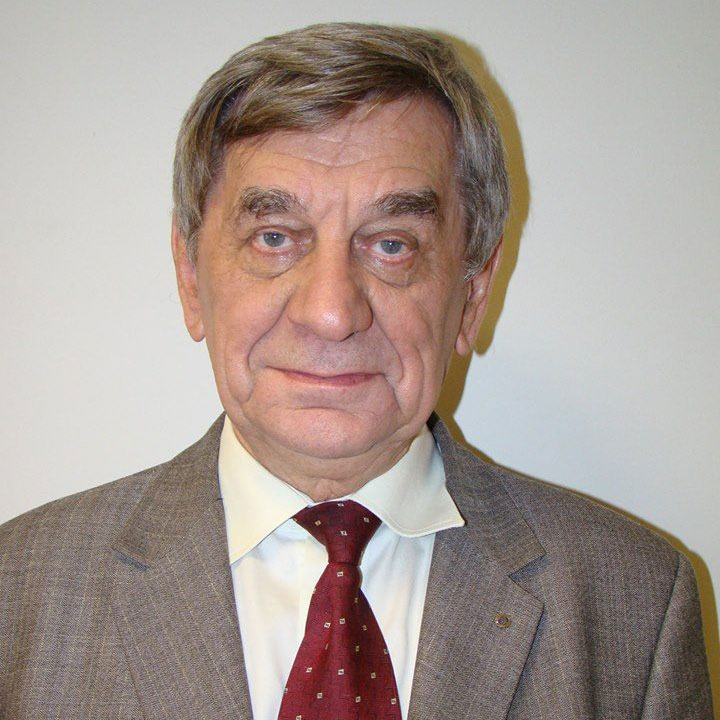
Prof. Romuald Będziński
Full Member of the Polish Academy of Sciences, Wrocław, Poland
Polish engineer, mechanic, specialist in biomedical engineering, professor of technical sciences, honorary doctor of the Medical University of Wrocław, full member of the Polish Academy of Sciences, long-time academic teacher at the Wrocław University of Science and Technology.

Polish engineer, mechanic, specialist in biomedical engineering, professor of technical sciences, honorary doctor of the Medical University of Wrocław, full member of the Polish Academy of Sciences, long-time academic teacher at the Wrocław University of Science and Technology.
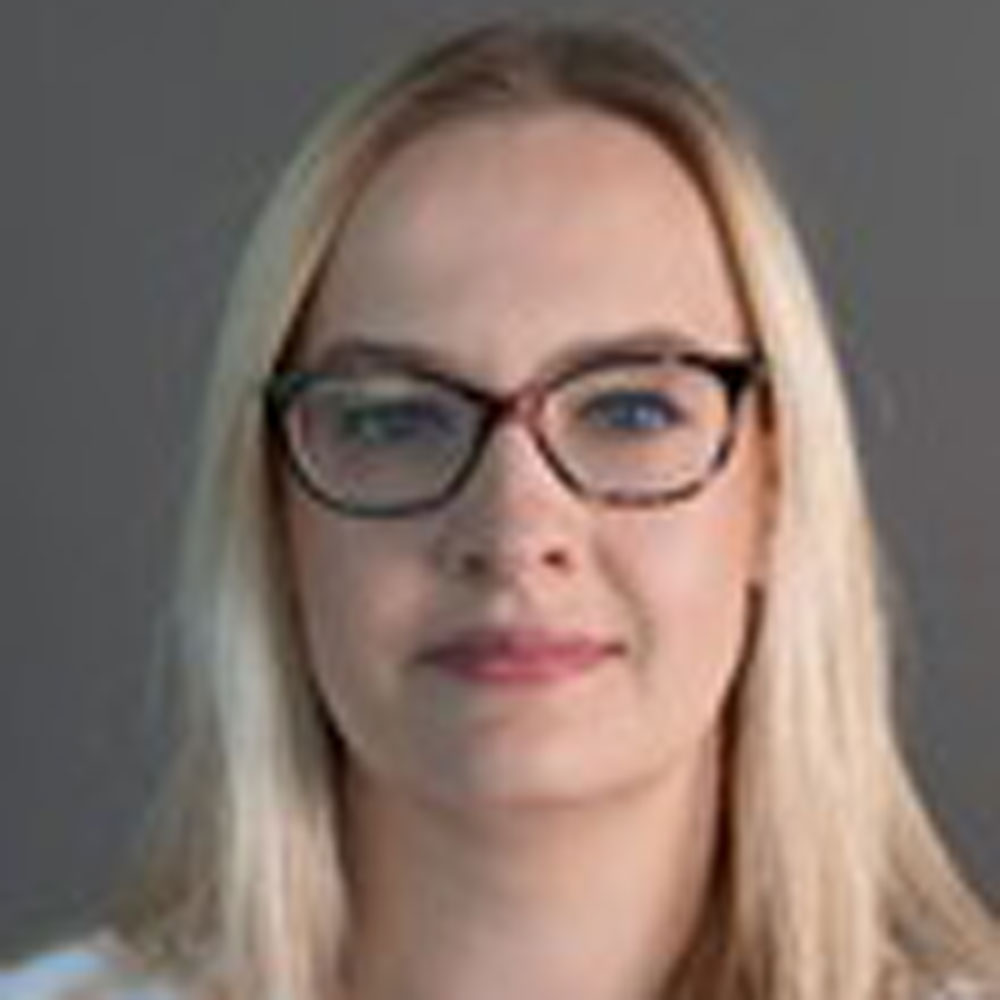
Prof. Anna Małgorzata Czarnecka, MD
Specialist in clinical oncology at the Clinic of Soft Tissue, Bone and Melanoma Cancers of the Maria Skłodowska-Curie National Institute of Oncology, State Research Institute, and specialist in biotechnology at the Department of Experimental Pharmacology, Mirosław Mossakowski Institute of Experimental and Clinical Medicine, Polish Academy of Sciences, Warsaw, Poland
Prof. Anna Małgorzata Czarnecka, MD, is a medical oncologist and molecular biologist specializing in cancer stem cells, drug resistance, and sarcoma biology. She holds MD, MSc, and MBA degrees and has trained internationally in oncology and molecular research. A recipient of multiple prestigious awards, she is recognized for her contributions to cancer treatment and research.

prof. Anna Małgorzata Czarnecka, MD is a medical doctor and molecular biologist. Her research interest includes cancer stem cells, drug resistance, and sarcoma molecular biology. She currently holds the position of associate professor in medical oncology. Prof. Czarnecka is a graduate of the First Faculty of Medicine at the Medical University of Warsaw (MD) and the College of Inter-Faculty Individual Studies in Mathematics and Natural Sciences at the University of Warsaw (MSc). In addition, she also holds the degree of Master’s in Business Administration (MBA) in healthcare management.
Prof. Czarnecka was trained in medical oncology in the Department of Oncology of the Military Institute of Medicine in Warsaw and as a molecular biologist leading the research teams of the Laboratory of Molecular Oncology. Her PhD research conducted in the Institute of Genetics and Biotechnology of the University of Warsaw focused on mitochondrial disfunction in breast, endometrial and vulvar cancers. She was awarded a DSc degree by Medical University of Gdańsk based on a series of publications entitled: ‘Clinical and molecular markers of the efficacy of treatment of renal cell carcinoma with tyrosine kinase inhibitors’. Prof. Czarnecka obtained postgraduate training in biostatistics at Collegium Medicum of the Jagiellonian University in Kraków and is also alumni of the professional development programme in the field of science management and commercialisation at Stanford University (USA).
She completed research fellowships at the Department of Urology Emory School of Medicine (Atlanta, USA), Dipartimento di Medicina Sperimentale Universite degli Studi di Palermo (Palermo, Italy) Universitätsklinik für Kinder- und Jugendheilkunde, Paracelsus Medizinische Privatuniversität (Salzburg, Austria) and Gene Function Center of the National Institute of Advanced Industrial Science and Technology (Ibaraki, Japan).
Prof. Czarnecka was honored with multiple awards, including scholarships from the Goldman Sachs Foundation, Kościuszko Foundation, and Fulbright Foundation, as well as the Foundation for Polish Science. She received a national L’Oreal Scholarship for Women and Science award.
During the Congress Prof. Czarnecka will deliver a lecture “From Molecular biology to clinical trials in melanoma”.
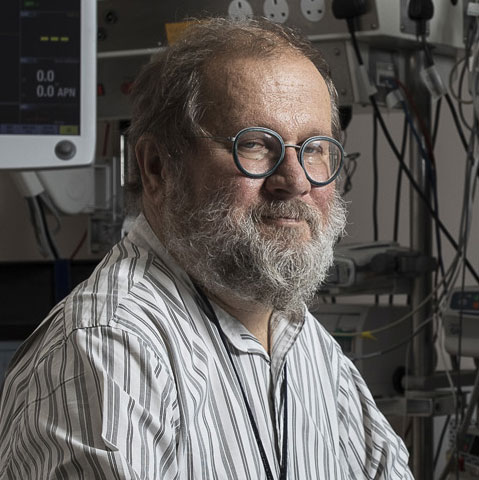
Prof. Marek Czosnyka
Professor Emeritus of Brain Physics, Division of Neurosurgery, Department of Clinical Neurosciences, University of Cambridge, UK
Professor Marek Czosnyka, based in Cambridge since 1991, has pioneered studies on cerebral autoregulation and cerebrospinal dynamics, publishing over 800 papers. He developed bedside ICP monitoring, multimodal systems, and diagnostic models for brain disorders. His innovations include methods for assessing cerebral autoregulation, CSF dynamics, and non-invasive cerebral perfusion.

The ability of the brain to perform its analytical, emotional and executive functions depends upon an intact blood supply and competent buoyancy mechanisms. Evidence that majority of brain disorders have meaningful vascular components, being either a reason or a consequence of impending pathology, grows continuously. Therapeutical strategy crucially depends on assessment of cerebrovascular abnormality, including dysautoregulation, abnormal distribution of blood flow, ischaemia and hyperemia.
Over the past 20 years Professor Czosnyka has been conducting studies on methodology, clinical applications and models in clinical and experimental neuroscience aimed on autoregulation of cerebral blood flow and cerebrospinal dynamics (with a special attention to dynamics of Intracranial Pressure (ICP)), publishing over 800 papers in scientific press. He focused on interactions between intracranial pressure, cerebral autoregulation, and cerebral blood flow.
Last 34 years (from 1991) Professor Czosnyka spent in Cambridge, U.K. where he gained experience in setting up and steering large-scale scientific projects. He started with organizing computer-assisted bed-side monitoring of ICP in neurological critical care 4-beds annex and a mobile trolley for computerized infusion test to diagnose patients with hydrocephalus. Gradually he extended the system to multimodal bed-side monitoring (including cerebral blood flow, brain oxygenation, microdialysis). Now these systems are in daily use in 21-beds Neuro-Critical Care Unit controlling modern bed-side monitoring facilities. He supervised and coordinated a variety of scientific projects being conducted there (for PhD students and visiting scholars).
Professor Marek Czosnyka’s three most important scientific achievements may be listed as follows:
- Invention of methods for the continuous assessment of cerebral autoregulation and cerebrovascular reactivity and demonstration that they strongly determine outcome following head injury.
- Building system for diagnosing based on mathematical modelling of CSF dynamics leading to clinical tests able to differentiate brain atrophy (e.g. Alzheimer disease) and remediable hydrocephalus.
Invention of the method for non-invasive assessment of cerebral perfusion pressure.
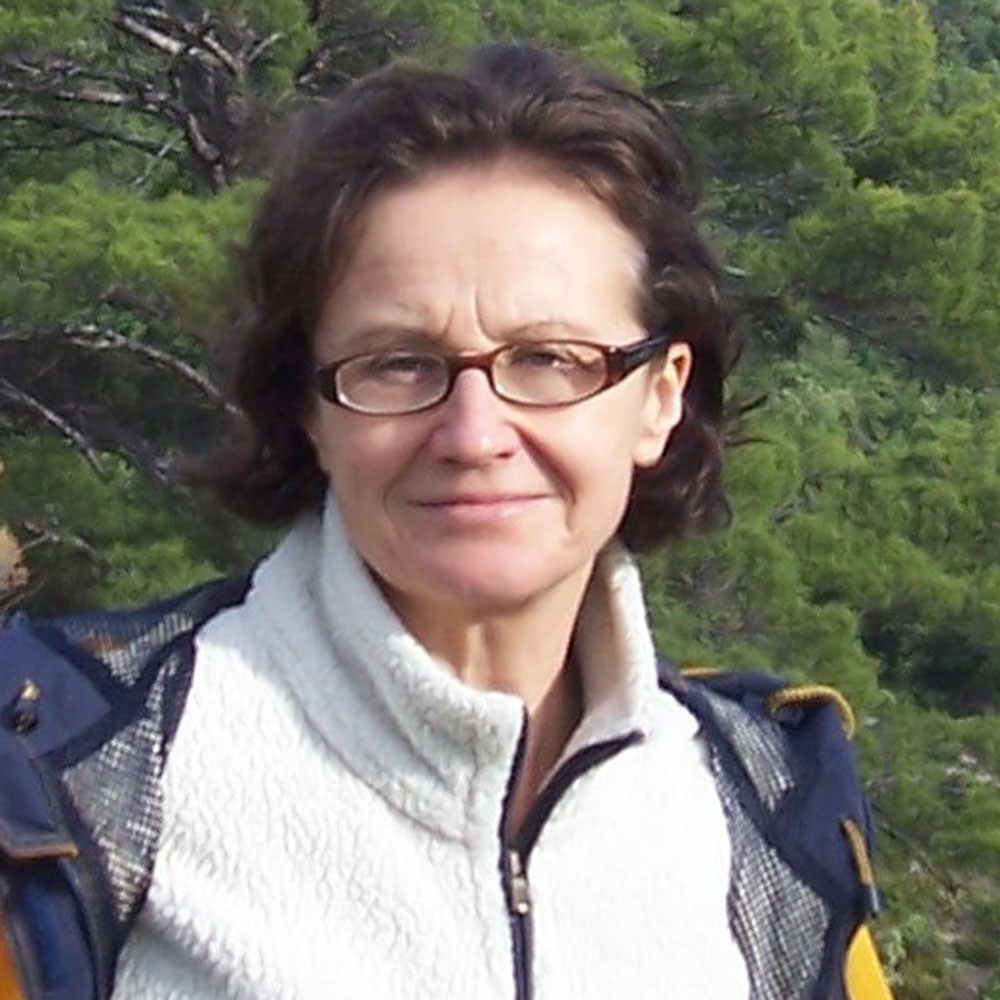
Prof. Zofia Czosnyka
Senior Research Associate, Division of Neurosurgery, Department of Clinical Neurosciences, University of Cambridge, UK
Dr. Zofia Czosnyka has worked in Cambridge since 1992, focusing on hydrocephalus management. She founded the Shunt Evaluation Laboratory in 1994, testing 21 shunt types and producing influential publications. Since 1999, she has led advanced monitoring of intracranial pressure, cerebral autoregulation, and CSF circulation disorders.

Her professional activity in Cambridge (since 1992) has been invariantly linked with the management of hydrocephalus. Growing number of cases of hydrocephalus seen every year, particularly in elderly, new understanding of the role of disturbance in cerebrospinal fluid (CSF) circulation and its biochemical makeup in brain diseases extending beyond traditional boundaries of hydrocephalus made this area of clinical neuroscience both challenging and innovative
In 1994 she set up and run Shunt Evaluation Laboratory- world renowned centre for independent evaluation of hydrodynamic properties of hydrocephalus shunts enabling precise shunt testing and tailoring use of different types of shunts in patients presenting with selective CSF circulatory problems. The Laboratory tested 21 types of valves producing number of publications and well known in the UK ‘blue reports’ containing descriptions, indications, literature review of the most popular and innovative type of shunts
Since 1999 she has run physiological monitoring unit (including computerized infusion tests and overnight monitoring of intracranial pressure) to diagnose hydrocephalic patients. These works have already gained some recognition and recently, she extended their scope to monitoring cerebral autoregulation, pressure-reactivity, analysis of vasogenic waveforms and viscoelastic properties of the brain tissue, as well as on modern brain imaging techniques (in co-operation).
Dr Zofia Czosnyka’s three most important achievements in this field include:
- Set up criteria for in-vivo assessment of hydrocephalus shunt, useful in avoiding unnecessary shunt revisions
- Description of the link between failure of CSF circulation in hydrocephalus and haemodynamic failure, particularly disorder of autoregulation of CBF and cerebral pressure-reactivity
- Popularization of infusion tests and overnight ICP monitoring in diagnosis of diseases linked to disorders of CSF circulation.
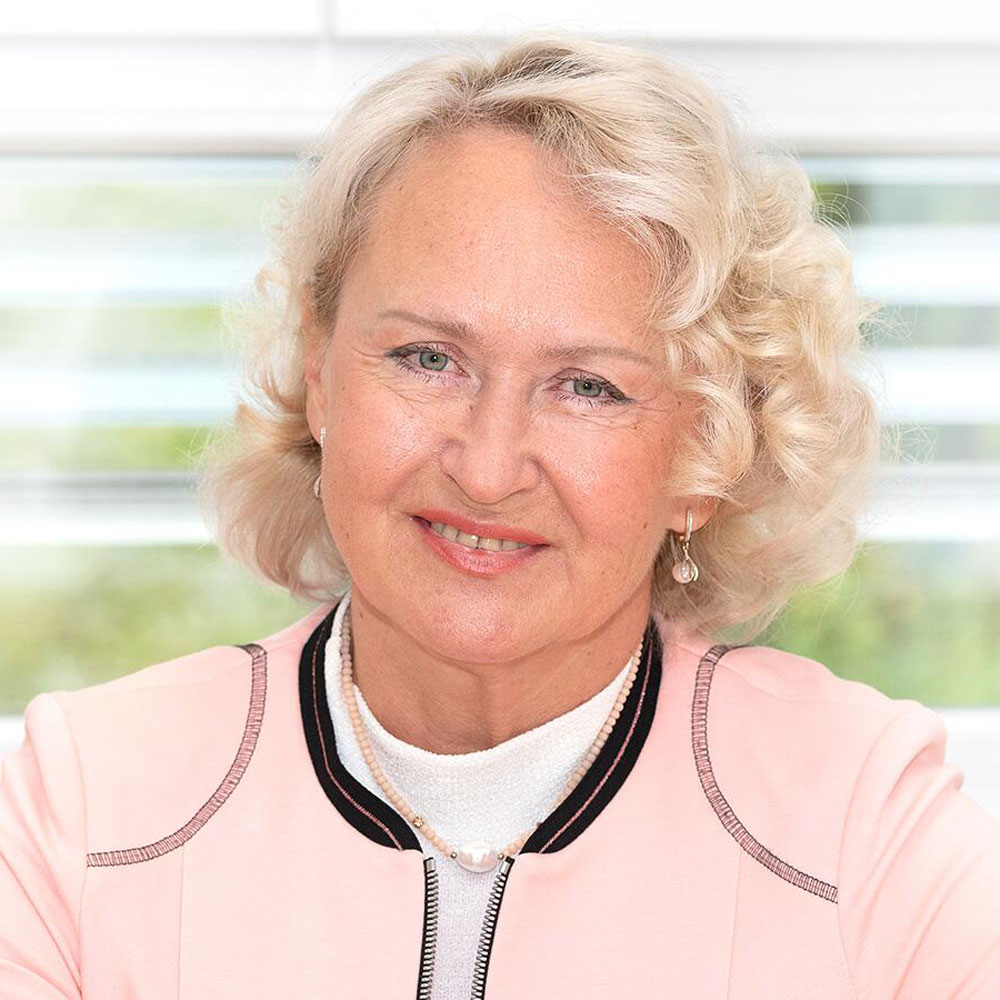
Prof. Olga Golubnitschaja, MD
Head of 3P Medicine, University Hospital, Bonn, Germany
Prof. Dr. Olga Golubnitschaja leads the world’s first 3P Medicine Unit at the University Hospital Bonn. With over 400 publications, a Google Scholar h-index of 60, and prestigious awards, she is a global leader in predictive, preventive, and personalized medicine. Since 2021, she has been President of EPMA, representing 50+ countries.

Prof. Dr. Olga Golubnitschaja is the Head of the world’s first Predictive, Preventive, and Personalised (3P) Medicine Unit at the Department of Radiation Oncology, University Hospital Bonn, Rheinische Friedrich-Wilhelms-Universität Bonn, Germany. Her multidisciplinary education spans journalism, biotechnology, and medicine, and she has held prestigious research fellowships in Austria, Russia, the UK, Germany, the Netherlands, and Switzerland. Her research focuses on early and predictive diagnostics in pediatrics, neurosciences, and cancer.
Prof. Dr. Golubnitschaja has authored over 400 international publications, including research and review articles, position papers, books, book chapters, and congress contributions. Her work is at the forefront of predictive, preventive, and personalised medicine (3PM), with primary research interests in sub-optimal health conditions, pre- and perinatal diagnostics, cardiovascular diseases, neurodegenerative pathologies, and predictive diagnostics in cancer and diabetes. Her Google Scholar h-index is an impressive 60, with annual citations exceeding 650 since 2019.
She has received numerous awards, including the National and International Fellowships of the Alexander von Humboldt Foundation, the Eiselsberg Prize and the Highest Prize in Medicine in Austria, the Springer Nature Award, and the EMA Award.
Since September 2021, Prof. Dr. Olga Golubnitschaja has been the President of the European Association for Predictive, Preventive, and Personalised Medicine (EPMA), based in Brussels, leading network spanning over 50 countries. From 2009 to 2021, Dr. Golubnitschaja served as the EPMA Secretary-General. She is also the Editor-in-Chief of the EPMA Journal (Clarivate IF: 8.836, Scopus CiteScore: 11.3) and the Springer Nature book series Advances in Predictive, Preventive, and Personalised Medicine.
Prof. Dr. Golubnitschaja represents Europe in the EDR-Network at the National Institutes of Health (USA) and serves as a reviewer for over 50 clinical and scientific journals, as well as for international funding bodies in Europe and beyond. She is a recognized evaluation expert at the European Commission and contributed to the development of the 3PM-related content in the European “Horizon 2020” program (2010–2013). Currently, Prof. Dr. Golubnitschaja holds leadership roles as Vice-Chair of the Habilitation Committee (responsible for all medical specializations) at the Medical Faculty of the University of Bonn and as Vice-Chair of the Evaluation Panel for Marie Curie Mobility Actions at the European Commission in Brussels.
Prof. Dr. Olga Golubnitschaja will serve as a member of the International Advisory Committee of our Congress.
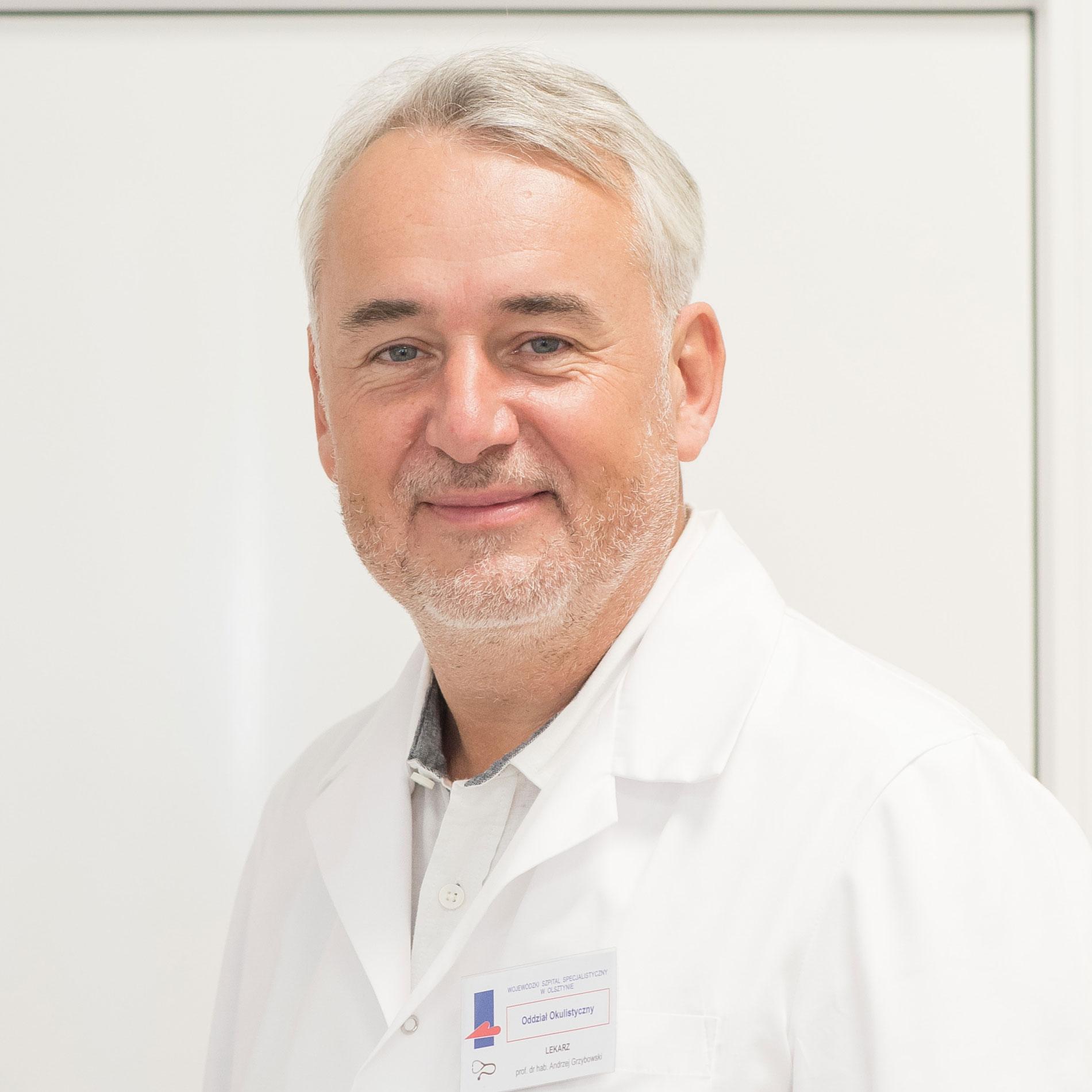
Prof. Andrzej Grzybowski, MD
Professor of Ophthalmology, Chair of the Department of Ophthalmology, University of Warmia and Mazury, Olsztyn, Poland
Prof. Andrzej Grzybowski, M.D., Ph.D., MBA, is a distinguished ophthalmologist, Chair of Ophthalmology at the University of Warmia and Mazury, and Head of the Institute for Research in Ophthalmology in Poznan. With over 500 publications, numerous editorial roles, and top global rankings in cataract research, he is a leading figure in international ophthalmology.

Andrzej Grzybowski, M.D., Ph.D., MBA, is a Professor of Ophthalmology and Chair of the Department of Ophthalmology, University of Warmia and Mazury, Olsztyn, Poland; Head of Institute for Research in Ophthalmology, Foundation for Ophthalmology Development, Poznan, Poland. He is active in international scientific societies including Euretina (Co-opted Board member 2016-2018), Retina Society, AAO (International Fellow; member of the Global ONE Advisory Board, Museum of Vision’s Program Committee, and member of the Task Force On Myopia), EVER (Board member and chair of the cataract section, 2019-2023), ESCRS (curator of ESCRS Archive), and ISRS (member of the ISRS International Council), ISBCS, International Council of Ophthalmology (program coordinator for WCO in 2011-2018), and Cogan Society. He became a lifelong member (chair LIV) of the European Academy of Ophthalmology (https://eaoacademy.eu) and its Treasurer. He is a member of the Ophthalmic Education Consortium (OEC) advisory committee of the Ophthalmology Foundation. He has been an active contributor to major ophthalmic conferences worldwide, including AAO (Achievement Award 2017, International Scholar Award 2018), APAO (International Coordinator 2017-2020, Achievement Award 2018), WCO (Program Coordinator 2010-2018), CCOS, Euretina, ESCRS, EVER, ISOPT, etc. He has been an active editor, editor in chief, and author of more than 500 peer-reviewed international publications, and over 50 book chapters; reviewer for more than 20 journals. He is a member of the editorial boards of many international journals, including the American Journal of Ophthalmology (IF 4.795), Acta Ophthalmologica (IF 3.1), PLOS One (IF 2.8), Graefe’s Archive for Clinical and Experimental Ophthalmology (IF 2,3), Translational Vision Science & Technology (TVST), (IF 2.2), BMC Ophthalmology (IF 1.5), Clinics in Dermatology (IF 2.2), Journal of Clinical Medicine (IF 5.8), Current Pharmaceutical Design (IF 2.4), Frontiers in Neurology (IF 3.5), Asia Pacific Academy of Ophthalmology Journal (IF 2.827), Ophthalmology and Therapy (IF 3.5). Reviewer and member of Cochrane Collaboration. As the only Polish ophthalmologist he was included in the TOP 2% ranking of world-best scientists prepared by Stanford University for 2019 and 2020. Expertscape worldwide ranking: No 1 in cataract field and No 1 in cataract extraction field. In 2021, he received ISRS (International Society for Refractive Surgery) Founders’ Award and published a book Artificial Intelligence in Ophthalmology (Springer). In 2022 he was awarded OFFICERS’ CROSS OF THE ORDER OF POLONIA RESTITUTA for outstanding achievements in research and teaching, and support for international scientific cooperation by the President of Poland; listed on the “The Power List” by The Ophthalmologist magazine, a ranking of the Top 100 most influential people in the world of ophthalmology (https://theophthalmologist.com/power-list/2022), and awarded by Marshal of Warmia and Mazury Region “The best of the best” recognition for scientific achievements.
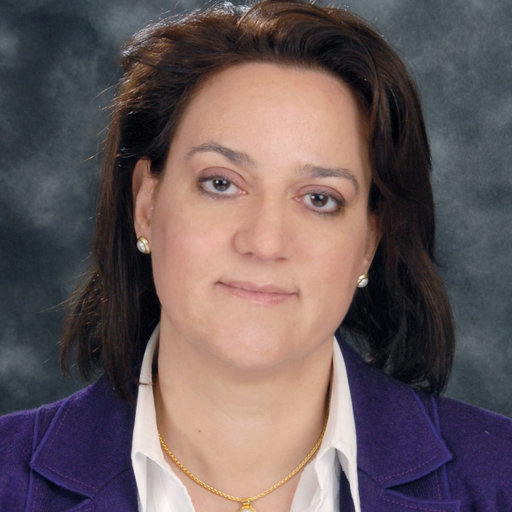
Prof. Effie Kapsalaki
University of Thessaly, Larissa, Greece
Dr. Kapsalaki, a professor of diagnostic radiology and specialized neuroradiologist, has been a faculty member at the University of Thessaly, Greece, since 2005 and Head of MR Imaging at Euromedica since 2021. With over 100 publications and 200 presentations, her work focuses on brain tumors, epilepsy, PD, and cerebrovascular diseases.

Dr Kapsalaki is a professor of diagnostic radiology and a subspecialized neuroradiologist.
She is a faculty member of the University of Thessaly in Larissa Greece since September 2005. Since October 2021 she is also the head of MR imaging at the Euromedica medical imaging group, a private diagnostic center with state of the art imaging modalities in Greece.
Dr Kapsalaki has graduated from the Medical School of the University of Athens, Greece in 1991 and has done her training in radiology at the Ag Sofia Children’s Hospital in Athens from May 1992 till May 1993 and has completed her training in radiology at Areteion Hospital in Athens in July 1996.
She was a fellow of neuroradiology at the Medical College of Georgia, in Augusta, GA and at Mercer University in Macon GA.
In 2005 she was elected a lecturer at the University of Thessaly.
She has more than 100 publications in peer reviewed journals and over 200 oral and poster presentations at national and international meetings.
Most of her publications and presentations are on neuroradiology and particularly brain tumors, epilepsy, PD, cerebrovascular diseases.
She was an invited speaker in more that 100 national and international meetings.
She is responsible for Radiology I teaching 4th year medical students during the first semester and she is responsible for 2 elective lessons in neuroradiology ( emergency neuroradiology and clinical and functional neuroradiology) during the second semester.
She is responsible for the neuroradiology protocols (clinical and research) at the University Hospital of Larissa and she also performs lectures on neuroradiology for the radiology and other specialty residents.
Dr Kapsalaki was also the elected Greek delegate at the European Society of Neuroradiology 2018-2020.
She has organized several national and international meetings in Greece.
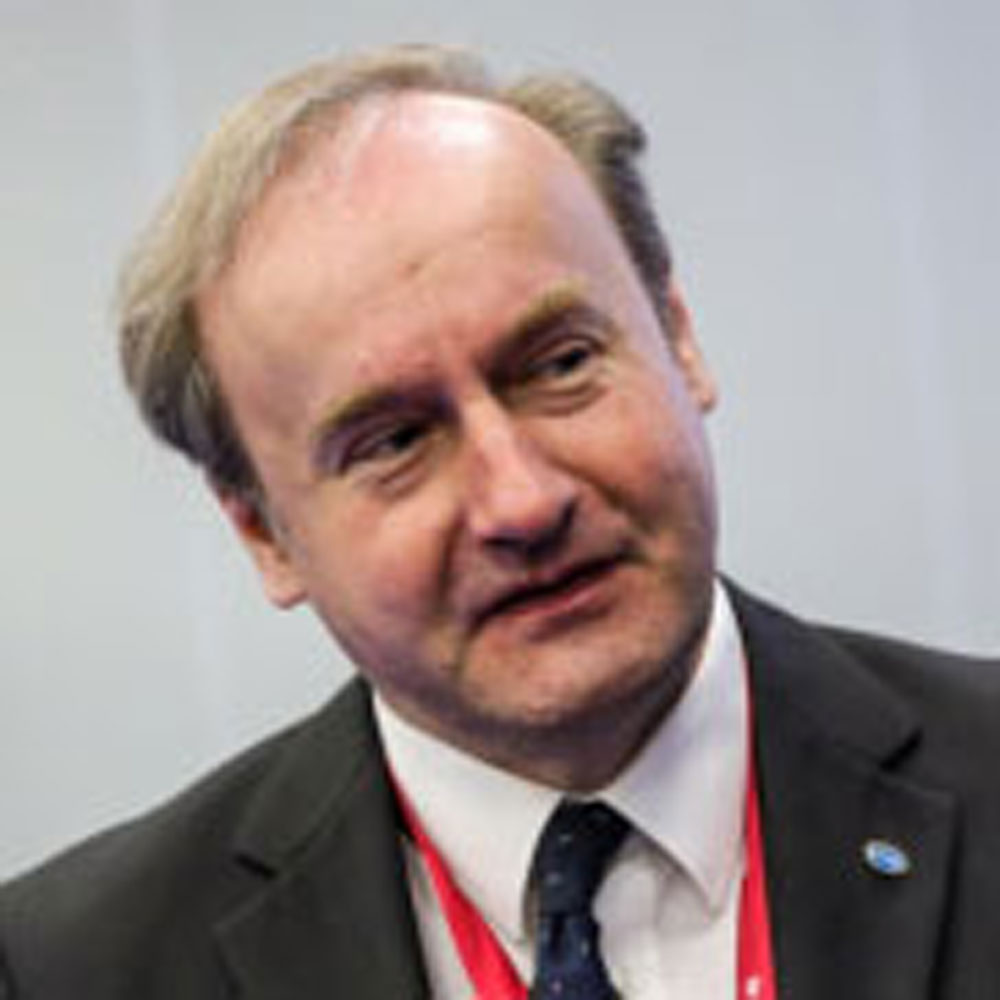
Kurt Krapfenbauer, PhD
Vice President at European Association for Predictive, Preventive and Personalised Medicine (EPMA), Austria
Dr. Kurt Krapfenbauer, a senior scientist specializing in biomarker research, has held leadership roles at Hoffman-La Roche, Novartis, and 3P-Medicon. With over 55 publications, seven patents, and expertise in predictive medicine, he is VP of International Affairs at EPMA. His talk will focus on AI’s role in advancing personalized oncology care.

Dr. Kurt Krapfenbauer began his career in 1995 at the Ludwig Boltzmann Institute for Radiation Chemistry, University of Vienna, and continued in 1996 as a scientist at the Institute for Amino Acid Research at the Medical University of Vienna. Following his studies, he expanded his expertise by moving to Basel, where he contributed to biomarker research at Hoffman-La Roche. He subsequently took on the role of Head of Biomarker Research at the Novartis Institutes for Biomedical Research.
Over his career, Dr. Krapfenbauer has been responsible for various critical functions, including Research & Development, Manufacturing Operations, Technical Operations, and Quality Assurance. His expertise was further broadened through postgraduate studies, earning a qualification as a Qualified Person. In this capacity, he actively works as a freelance consultant.
Dr. Krapfenbauer is an accomplished senior scientist with extensive experience in biomarker research, particularly in the development and validation of biomarker assays. He is a founding member of the European Predictive, Preventive, and Personalized Medicine Association (EPMA), established in 2008 in Brussels, and co-founder of the 3P-Medicon startup company in 2020.
He served as Vice President for European Affairs at EPMA from 2008 to 2020 and has held the role of Vice President for International Affairs since 2021.
He holds a Ph.D. and a master’s degree in chemistry and bioanalytical chemistry from the University of Vienna. Dr. Krapfenbauer is the inventor of more than seven international patents, which earned him the Roche Inventory Award in 2005. Additionally, he has authored over 55 scientific publications in the field of biochemical research.
Dr. Krapfenbauer will talk about: The integration of AI in the pharmaceutical industry and biomarker research to advance predictive, preventive, and personalized approaches to oncological patient care.
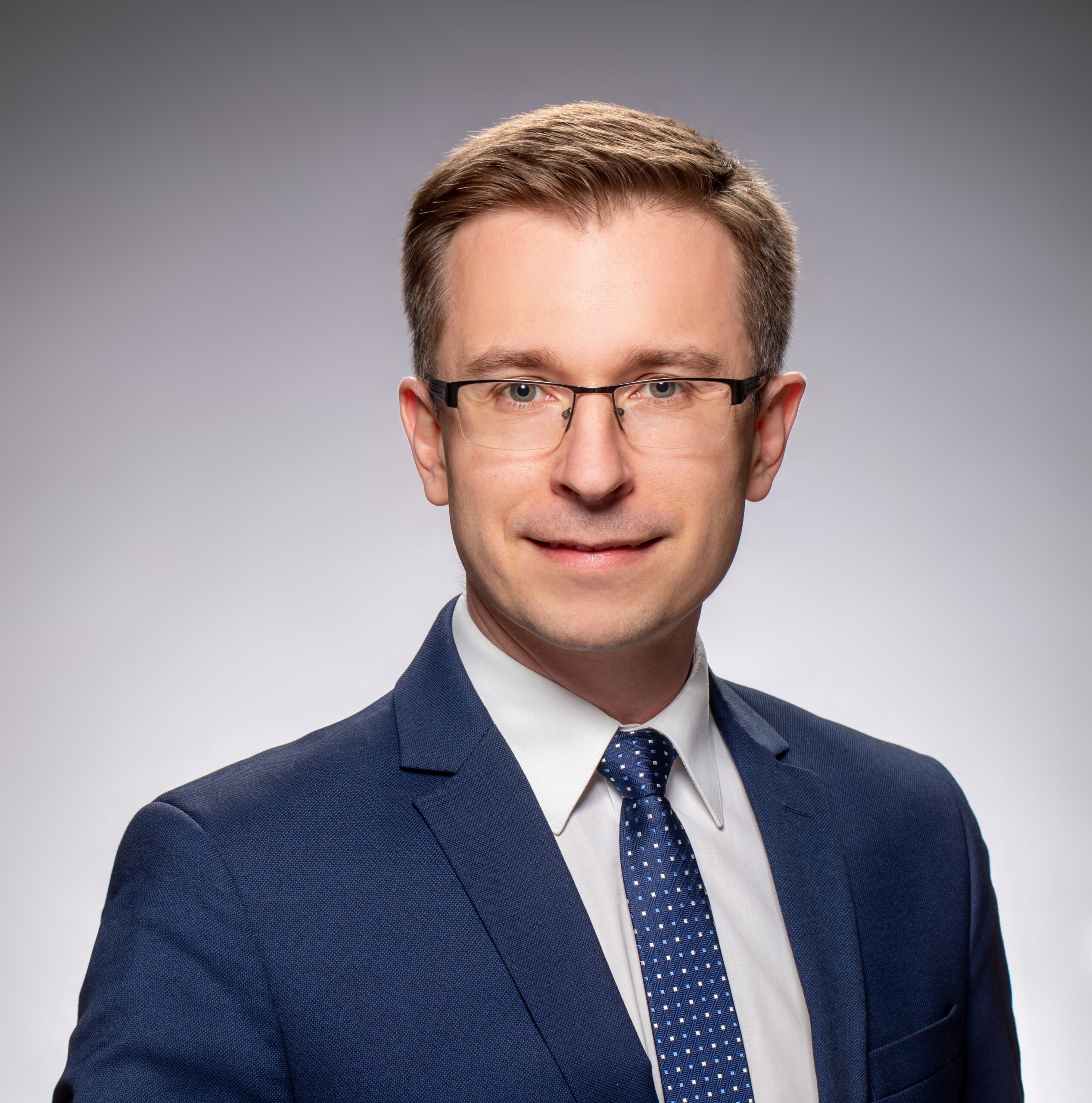
Prof. Paweł Krzesiński, MD
Head of Department of Cardiology and Internal Diseases, Military Institute of Medicine - National Research Institute; Chairman of the e-Health, Telemedicine, and Artificial Intelligence Committee of the Polish Cardiac Society, Warsaw, Poland
Prof. Paweł Krzesiński, MD, specializes in cardiovascular diseases and telemedicine. His research focuses on heart failure, hypertension, and arrhythmias using advanced diagnostics. He led the AMULET telecare project for heart failure patients and has authored nearly 200 publications. He collaborates widely and contributes to key scientific initiatives.

Medical Interests: Application of modern methods in the diagnosis and treatment of patients with cardiovascular diseases, telemedicine. His scientific research focuses on, among others, the pathomechanisms of heart failure, arterial hypertension, and cardiac arrhythmias, including the use of advanced diagnostic methods such as impedance cardiography, cardiopulmonary exercise testing, and heart rate variability analysis.
He led the strategic scientific project AMULET, funded by the National Centre for Research and Development (NCBiR), which developed an innovative telecare model for patients with heart failure. He collaborates with numerous medical institutions, technology centers, and innovative entrepreneurs in the medical industry.
Author of nearly 200 scientific publications with a total impact factor (IF) > 350 points and MNiSW score > 9000 points. He has been an investigator in projects funded by national or international bodies (NCBiR, ABM, MON, MNiSW/MEiN), multicenter registries, and numerous statutory projects at the Military Institute of Medicine – National Research Institute (WIM-PIB). He is a member of scientific societies and expert panels.
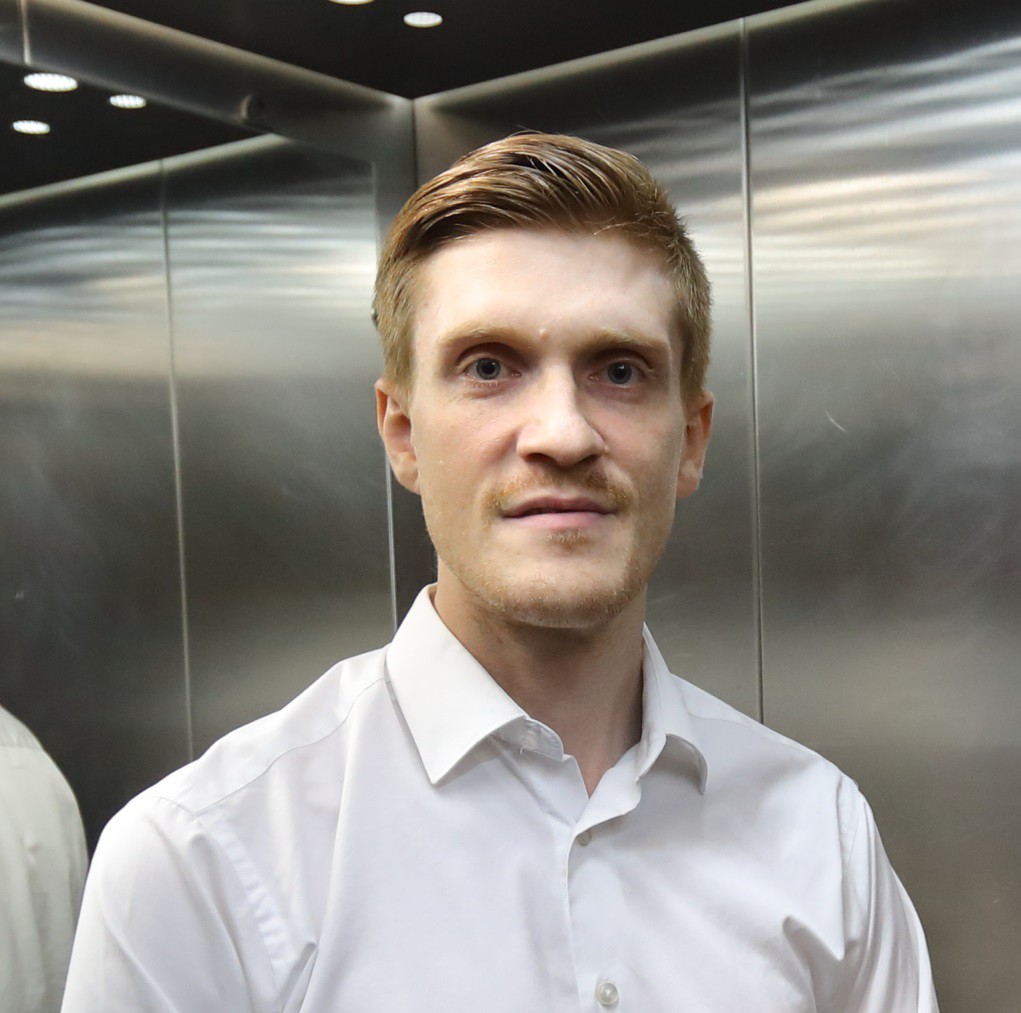
Michał Kucewicz, PhD
Founder of the Brain & Mind Electrophysiology (BME) lab at the BioTechMed Center of the Gdansk University of Technology, Gdańsk, Poland
Dr. Michal Kucewicz, founder of the Brain & Mind Electrophysiology (BME) Lab at Gdansk University of Technology, specializes in brain activity research for memory and neuromodulation therapies. A former Mayo Clinic researcher, he contributed to DARPA’s RAM project. His work advances AI-driven Brain-Computer Interfaces for personalized cognitive treatment.

Dr. Michal Kucewicz is the founder of the Brain & Mind Electrophysiology (BME) lab at the BioTechMed Center of the Gdansk University of Technology in Poland. BME lab focuses on studying the brain activities underlying memory and higher cognitive functions with technologies for intracranial multi-electrode recordings and stimulation mainly in epilepsypatients. The goal of this research is to discover the elctrophysiological substrates of engrams and the human mind to develop neuromodulation therapies for restoring these in epilepsy, dementias, psychiatric and other brain diseases.
Dr. Kucewicz is an electrophysiologist by training. He graduated from Cambridge University in neuroscience and completed his doctoral studies in electrophysiology of memory functions at the University of Bristol in the United Kingdom. His postdoctoral research at Mayo Clinic in the USA took advantage of intracranial brain recordings and stimulation in epilepsy patients undergoing invasive monitoring of drug-resistant seizures to investigate the neural activities supporting memory processing. During this time at Mayo Clinic, Dr. Kucewicz took part in one of the flagship projects of theAmerican BRAIN initiative called ‘Restoring Active Memories’ (RAM) funded by DARPA. The team that he was leading at Mayo Clinic discovered that direct electrical stimulation in the lateral temporal cortex improves human verbal memory even in patuients without any memory deficits.
His BME lab is currently working on implantable devices and technologies for continuous recording and intelligent brain stimulation during daily life performance.This research develops next-generation Brain-Computer Interfaces (BCIs) for adaptive neuromodulation therapies employing artificial intelligence and Big-Data analytics from months and years of recording electrophysiological activities that are streamed from the implanted device to cloud environment in order to optimize the stimulation therapy in any one patient.The envisioned outcomes aim towards personalized telemedicine diagnosis, monitoring and treatment of memory and cognitive deficits with adaptive neuromodulation.
Dr. Kucewicz’s research has been continually supported from prestigious national and international grants from the Foundation for Polish Science, the National Science Centre in Poland, and from other European research programmes. He serves as a reviewer for these and other major programmes, including the Horizon grants from he European Research Council, and for the leading journals like ScienceAdavances, Nature Communications, Nature Human Behavior or Brain. Dr. Kucewicz was recognized as the scientist of the year by the neurology department at Mayo Clinic, where he currently holds an Assistant Professor academic rank.
Besides his research achievements, Dr. Kucewicz is a loving husband and a father of four. He is leading the mission of Cor et Lumen Christi international catholic community in Poland, which proclaims the Gospel confirmed with prophecies, healings and other supernatural signs.
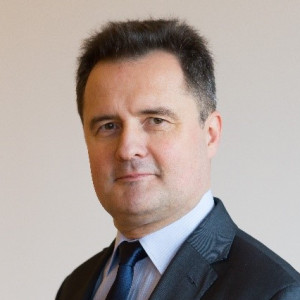
Prof. Przemysław Mitkowski, MD
Head of Electrotherapy Laboratory, 1st Department of Cardiology, Chair of Cardiology Poznan University of Medical Sciences, University Clinical Hospital in Poznań, Poland

Head of Electrotherapy Laboratory, 1st Department of Cardiology, Chair of Cardiology Poznan University of Medical Sciences, University Clinical Hospital in Poznań, Poland
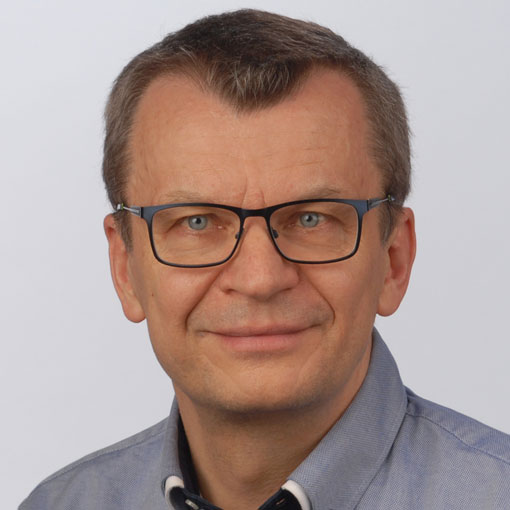
Prof. Georg Rose
Chair for Medical Engineering, Chairman of the Executive Board of the Research Campus STIMULATE, Otto von Guericke University, Magdeburg, Germany
Full Professor of Medical Engineering at Otto-von-Guericke University Magdeburg and Chairman of the Research Campus STIMULATE. Author of around 350 publications, holder of 15 patents, and initiator of six successful startups. Recipient of five international awards and leader of numerous EU, federal, and state-funded research projects exceeding €100 million.

Born in Pokój in Namysłów County, Opole Voivodeship, he studied physics and mathematics at the Universities of Düsseldorf and Aachen in Germany, where he also earned his PhD in theoretical physics. He began his scientific career as a postdoctoral researcher at the Clinic for Neurology of the University Hospital Düsseldorf. Later, he worked as a researcher and group leader at Philips Research Laboratories GmbH, with assignments in Aachen (Germany), Eindhoven (Netherlands), Taipei (Taiwan), and Briarcliff (New York, USA).
Since 2006, he has been a Full Professor of Medical Engineering at Otto-von-Guericke University Magdeburg (OVGU). At OVGU, he has held numerous academic positions, including Member of the Ethics Commission, Vice-Dean of the Faculty, Senator (since 2016), and since 2013, Chairman of the Executive Board and Principal Investigator of the Research Campus STIMULATE.
He has made significant contributions to teaching by founding and directing the Bachelor’s program in Medical Engineering and the Master’s program in Medical Systems Engineering. He also established ERASMUS collaborations with universities in Edinburgh, Cork, and Eindhoven and serves as a visiting lecturer at the University of Edinburgh.
Among his key achievements are the development and establishment of the medical technology research focus at the University of Magdeburg and the initiation of the Research Campus STIMULATE, where he acts as Principal Investigator and Chairman. His scientific output includes approximately 350 publications, and he serves as a reviewer for around 20 scientific journals as well as for EU and national funding institutions. His projects have attracted around 100 million euros in research funding from European, federal, and state sources. He has also received five national and international awards recognizing his research excellence.
In the field of technology transfer and innovation, he holds 15 patents and has played a key role in initiating and supporting six successful startup companies. Moreover, he is the initiator, Principal Investigator, and Spokesman of the transport initiative, which fosters the development of a strong medical technology ecosystem.
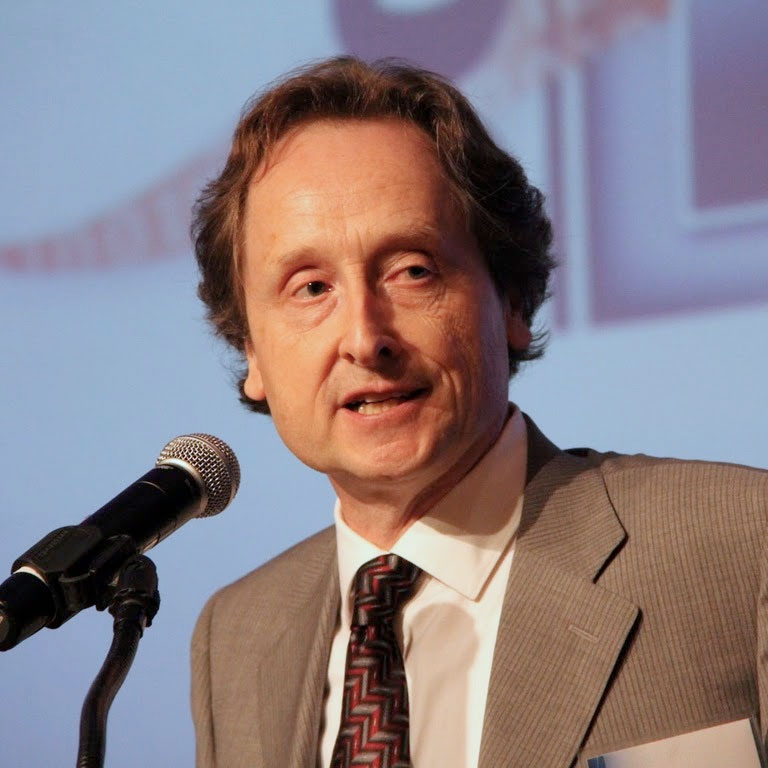
Prof. Jerzy W. Rozenblit
University Distinguished Professor and Raymond J. Oglethorpe Endowed Chair in the Department of Electrical and Computer Engineering (ECE) at the University of Arizona, in Tucson, Arizona, USA
Jerzy W. Rozenblit, University Distinguished Professor and Raymond J. Oglethorpe Endowed Chair at the University of Arizona, is a pioneer in engineering computer-based systems (ECBS). He founded the Model-Based Design Lab and developed innovative systems for minimally invasive surgical training, improving patient safety. His work spans VLSI design, embedded systems, and national security.

Jerzy W. Rozenblit is a University Distinguished Professor and Raymond J. Oglethorpe Endowed Chair in the Department of Electrical and Computer Engineering (ECE) at the University of Arizona, in Tucson, Arizona. He also holds a joint appointment as Professor of Surgery at the University of Arizona College of Medicine. From 2003 to 2011 he served as the ECE Department Head. During his tenure at the University of Arizona, he established the Model-Based Design Laboratory with major projects in complex systems design hardware software codesign, modeling, and computer-aided minimally-invasive surgical training. He presently serves as Director of the Life-Critical Computing Systems Initiative, a research enterprise intended to improve the reliability and safety of technology in life-critical applications.
Rozenblit is one of the founders of the area known as the engineering of computer-based systems (ECBS). His key contributions are seminal works in model-based design that established the theoretical basis of ECBS and bringing ECBS principles to practice in a number of significant engineering applications, namely VLSI design and manufacturing embedded systems design and testing, computer-assisted surgery (clinical medicine), and national security.
Specific technical innovations of his approach include the development of heuristics for design space search (a problem well known and proven to be NP-complete). The developed heuristics that use a rule-based approach to reduce the search complexity from exponential to polynomial and allow for rapid construction of simulatable design models.
Leveraging from his work in design and modeling. Rozenblit developed the model-based codesign approach that integrated hardware and software development paths, solving the “model continuity” problem by providing techniques to map formal specification onto executable design models. Rozenblit’s recent work in design and engineering of systems for minimally invasive surgical training and computer-assisted surgery has strong societal implications, namely the improvement of patients’ safety. He has developed the first ever system that improves the situational awareness in laparoscopic surgery using vision, sensor, and haptic-based guidance.
In 2009, he was named University Distinguished Professor by the University of Arizona and its Arizona Board of Regents for exceptional contributions to research and undergraduate education.
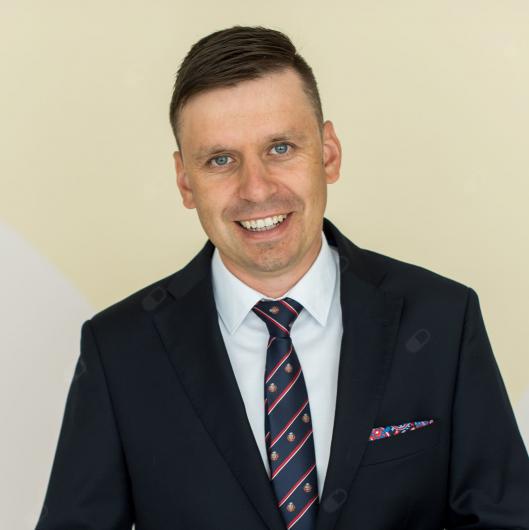
Prof. Pawel Tabakow, MD
University Center of Neurology and Neurosurgery of the Wroclaw Medical University and Neurosurgical Ward of the Tadeusz Marciniak Specialist Hospital of Wroclaw, Poland
Prof. Pawel Tabakow, a leading Polish neurosurgeon, specializes in neurooncology, endoscopic surgery, functional neurosurgery, and spinal cord injury regeneration. He pioneered spinal cord reconstruction using olfactory bulb glial cell transplants and developed innovative surgical techniques. With over 50 publications, he is a key figure in neurosurgical advancements.

Prof. Pawel Tabakow is a renown polish specialist in neurosurgery since 2009. Currently he works at the University Center of Neurology and Neurosurgery of the Wroclaw Medical University and at the Neurosurgical Ward of the Tadeusz Marciniak Specialist Hospital of Wroclaw. His main areas of clinical expertise are neurooncology, endoscopic surgery, functional neurosurgery (with special emphasis to epilepsy and psychosurgery) and regenerative-promoting strategies in spinal cord injuries. Dr Pawel Tabakow has elaborated and published with his team an unique method for functional reconstruction of the completely severed spinal cord in patients, that is based on transplantation of autologous human olfactory bulb ensheathing glial cells, along with peripheral nerve grafts. He has developed and published also a new surgical method for endoscopic surgeries in patients with hydrocephalus or bran arachnoid cysts, that is based on the usage of ventriculo- or cysternography together with low field intraoperative MRI imaging. In the field of functional neurosurgery, prof. Tabakow has performed together with prof. Joanna Rymaszewska’s team pioneering surgeries of deep brain stimulation in patients with medically refractory obsessive – compulsive disorder and depression, using new brain targets (like the medial forebrain bundle). He also has introduced broadly into practice in Poland the technique of long-term invasive monitoring of brain activity, in patients with epilepsy, by means of stereoencephalographic surgery.
Prof. Tabakow has published over 50 papers, had about 70 active conference participations and has accomplished 33 international courses worldwide. He is a member of the European Society of Neurosurgeons as well as member of the Main Board of the Polish Society of Neurosurgeons.

Radosław Tarkowski, MD, PhD
Medical Coordinator of the Breast Unit at the Specialist Hospital of Legnica, Poland
Dr. Radosław Tarkowski, MD, PhD, is a surgical oncologist specializing in breast cancer treatment and quality-of-life improvements. As Medical Coordinator of the Breast Unit in Legnica, Poland, he pioneers oncoplastic and reconstructive techniques. A dedicated educator and mentor, he actively promotes cancer awareness and education. His lecture will focus on surgical excellence in breast cancer care.

Dr. Radosław Tarkowski, MD, PhD is a dedicated surgical oncologist specializing in breast cancer, particularly in improving treatment outcomes and quality of life for women. Since 2017, he has served as the Medical Coordinator of the Breast Unit at the Specialist Hospital of Legnica, Poland. With a distinguished career spanning over two decades, Dr. Tarkowski has been deeply involved in cancer education and clinical practice.
From 1997 to 2017, he held dual roles as an academic teacher at the Department of Oncology at Wroclaw Medical University and as a surgeon at the Regional Comprehensive Cancer Center. His 25 years of experience in oncology education and surgery have been devoted to advancing the quality of breast cancer care. He is particularly passionate about oncoplastic and reconstructive surgery techniques, which he introduced to his practice after completing advanced training in Italy, Germany, and Israel.
Dr. Tarkowski firmly believes that excellence in surgical care requires not only technical skill but also non-technical competencies, such as communication and teamwork, which significantly influence treatment outcomes. His insights on implementing these skills in Polish hospitals were documented in his monograph, published in Kraków in 2020.
As an advocate for education, Dr. Tarkowski has been a mentor to students for over 20 years as a tutor of the Student Scientific Organization at Wroclaw Medical University. He actively promotes cancer awareness and education through numerous outreach events, including school programs and community meetings. His guiding principle, inspired by the Dalai Lama, is: “Share your knowledge. It’s a way to achieve immortality.” He adapted this wisdom to his field with the motto: “Deliver cancer education. It’s a way to reduce mortality.”
Dr. Tarkowski is a graduate of Wroclaw Medical University and an alumnus of the prestigious POLE—Program of Oncology Leaders—organized by the European School of Oncology at Bocconi University in Milan, Italy (2014–2015). He has also served as a board member and President of the European Association for Cancer Education (2021–2023) and is a Fellow of the American Association for Cancer Education.
He is proud to serve as a medical consultant for the Femina Fenix Breast Cancer Survivors Association, where he supports survivors through guidance and expertise. Additionally, he is a reviewer for the Journal of Cancer Education and the Israel Science Foundation, contributing to the advancement of medical knowledge. As an interpreter of medical literature, he ensures critical research is accessible and understood by a broader audience.
Dr. Tarkowski will deliver a lecture titled: Improving the Quality of Breast Cancer Treatment and Quality of Life for Survivors Through Surgical Excellence: Oncoplastic and Reconstructive Surgery Techniques.
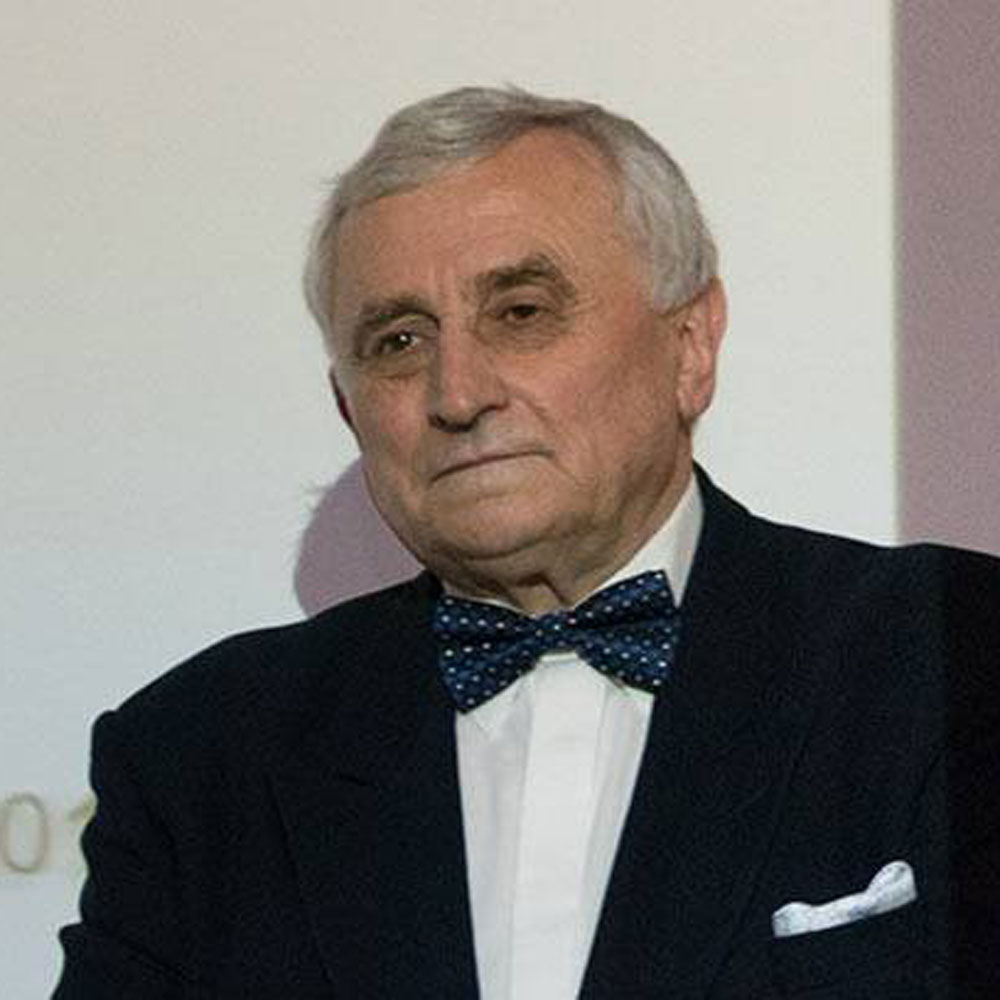
Prof. Wojciech Witkiewicz Dr.hc.
Director of the Provincial Specialist Hospital in Wrocław – Research and Development Center
Distinguished specialist in surgery, vascular surgery, and transplantology. Organizer, founder and head of the Department of General, Vascular, Transplant, Oncological Surgery, and Chemotherapy. An excellent doctor and a distinguished scientist with outstanding managerial skills and the ability to lead large teams, which enabled him to excellently organize the hospital’s operations and equip it with state-of-the-art technology. For many years, the hospital has ranked among the top hospitals in Poland. One of Professor Witkiewicz’s greatest achievements is equipping the hospital with the da Vinci surgical robot, the first device of its kind in Poland.

Distinguished specialist in surgery, vascular surgery, and transplantology. Organizer, founder and head of the Department of General, Vascular, Transplant, Oncological Surgery, and Chemotherapy. An excellent doctor and a distinguished scientist with outstanding managerial skills and the ability to lead large teams, which enabled him to excellently organize the hospital’s operations and equip it with state-of-the-art technology. For many years, the hospital has ranked among the top hospitals in Poland. One of Professor Witkiewicz’s greatest achievements is equipping the hospital with the da Vinci surgical robot, the first device of its kind in Poland.
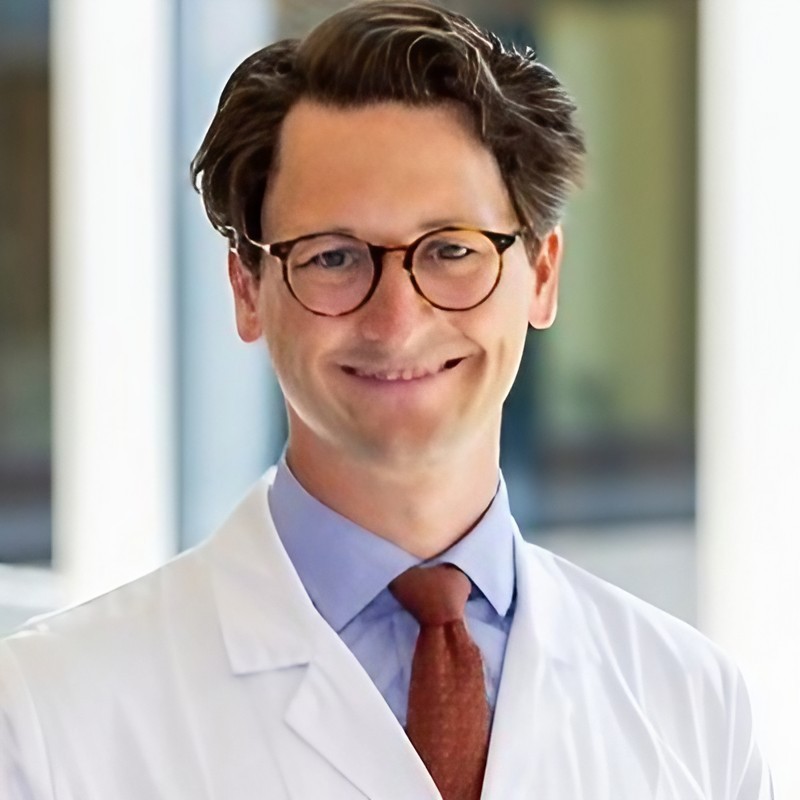
Prof. Thomas A. Zelniker, MD
Senior Physician, Director of the Cardiometabolic Clinic, Director of the Intermediate Care Unit, and Inpatient Service, Vienna General Hospital, Medical University of Vienna, Austria

Senior Physician, Director of the Cardiometabolic Clinic, Director of the Intermediate Care Unit, and Inpatient Service, Vienna General Hospital, Medical University of Vienna, Austria
